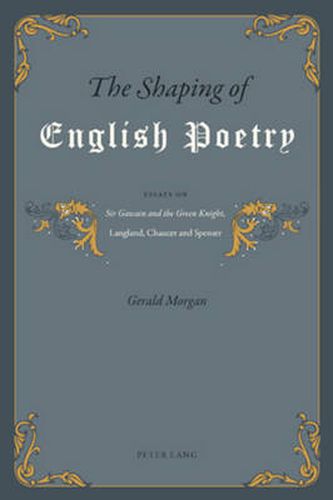Readings Newsletter
Become a Readings Member to make your shopping experience even easier.
Sign in or sign up for free!
You’re not far away from qualifying for FREE standard shipping within Australia
You’ve qualified for FREE standard shipping within Australia
The cart is loading…






This collection of essays is conceived not as a summary of past endeavours but as the beginning of an attempt to present a sense of the wholeness of a distinctively English literature from Beowulf to Spenser. The native alliterative tradition of England is represented by its final flowering in two essays on Sir Gawain and the Green Knight and three on Piers Plowman. The renewal of English letters in the fourteenth century, inspired by continental models in French and Italian, is represented by four essays on Chaucer. The poetic achievement of these three medieval masters remains unmatched until Spenser announces himself in a third great age in the history of English poetry and this is represented by three essays on the first three books of The Faerie Queene. Spenser’s indebtedness to Langland and Chaucer, and his philosophical conservatism in drawing on the thought of Aristotle and the tradition of medieval commentary surrounding the works of Aristotle, ensure that the tradition of English poetry in the Renaissance is securely rooted in its medieval inheritance.
$9.00 standard shipping within Australia
FREE standard shipping within Australia for orders over $100.00
Express & International shipping calculated at checkout
This collection of essays is conceived not as a summary of past endeavours but as the beginning of an attempt to present a sense of the wholeness of a distinctively English literature from Beowulf to Spenser. The native alliterative tradition of England is represented by its final flowering in two essays on Sir Gawain and the Green Knight and three on Piers Plowman. The renewal of English letters in the fourteenth century, inspired by continental models in French and Italian, is represented by four essays on Chaucer. The poetic achievement of these three medieval masters remains unmatched until Spenser announces himself in a third great age in the history of English poetry and this is represented by three essays on the first three books of The Faerie Queene. Spenser’s indebtedness to Langland and Chaucer, and his philosophical conservatism in drawing on the thought of Aristotle and the tradition of medieval commentary surrounding the works of Aristotle, ensure that the tradition of English poetry in the Renaissance is securely rooted in its medieval inheritance.